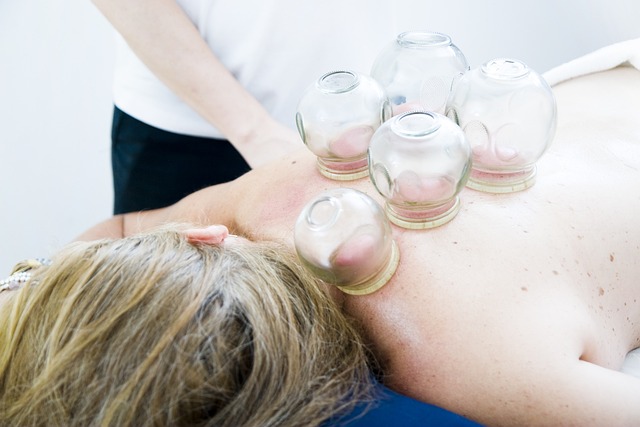Cold plunge therapy, involving brief immersions in cold water, is a powerful tool for managing stress and anxiety. It triggers physiological responses that improve circulation, enhance endorphin release (natural 'feel-good' hormones), reduce cortisol levels (primary stress hormone), and promote mental clarity and relaxation. Regular cold plunges offer benefits like improved sleep quality, enhanced resilience to stress, and greater emotional well-being, making them an appealing alternative or addition to conventional stress management methods. Personalize your routine by adjusting water temperature, duration, and incorporating breathing/mindfulness exercises for optimal relaxation.
“Unwind and rejuvenate with the transformative power of personalized cold plunge routines. This practice, increasingly recognized for its profound impact on mental well-being, offers a natural remedy for stress and anxiety. Dive into our comprehensive guide to uncover the science behind cold water therapy and its calming effects. We explore how customizing your cold plunge routine can optimize relaxation, reduce anxiety, and enhance overall mental health. From understanding the benefits of cold exposure to effective techniques, this article equips you with the knowledge to harness the power of cold for profound stress relief.”
Understanding Cold Plunge Therapy for Stress Relief
Cold plunge therapy has gained traction as a powerful tool for stress and anxiety relief. This ancient practice involves immersing oneself in cold water, typically for short periods, to stimulate a range of physiological responses. The sudden exposure to cold water triggers a cascade of effects in the body, including increased heart rate, followed by vasoconstriction (narrowing of blood vessels) and then vasodilation (widening). This process promotes improved circulation and enhances the release of endorphins, often referred to as ‘feel-good’ hormones.
The benefits of cold plunges for stress relief are well documented. The calming effects of cold water immersion can help reduce levels of cortisol, commonly known as the stress hormone. By interrupting the body’s stress response cycle, cold therapy provides a natural way to soothe anxious minds and promote mental clarity. Many people find that regular cold plunges enhance overall well-being, improve mood, and foster a deeper sense of relaxation, making it an attractive alternative or complement to traditional stress management techniques.
Benefits of Cold Water Immersion on Mental Health
Cold water immersion, or cold plunging, has gained popularity as a holistic approach to stress and anxiety relief due to its profound effects on mental health. When you immerse yourself in cold water, whether it’s a quick dip in an ice-cold lake or a refreshing shower, your body undergoes a series of physiological changes that promote mental well-being. One of the key benefits is the reduction of stress hormones such as cortisol, often referred to as the ‘stress hormone’. Cold exposure triggers a physiological response that leads to a release of endorphins, natural painkillers and mood elevators, which can help alleviate symptoms of anxiety and depression.
The calming effects of cold plunges extend beyond physical sensations. The sudden chill can create a sense of mental clarity and focus by stimulating the vagus nerve, which is associated with the body’s relaxation response. This activation helps to calm the mind, reduce restlessness, and promote a deeper state of relaxation. Regular cold water therapy for mental health has been linked to improved sleep quality, enhanced resilience to stress, and a greater sense of emotional well-being, making it an increasingly popular tool in managing modern lifestyle stresses.
Personalizing Your Cold Plunge Routine for Optimal Relaxation
Personalizing your cold plunge routine is key to unlocking its optimal relaxing potential. While the basic concept remains consistent – immersing yourself in cold water – tailoring your experience to your specific stress and anxiety-related needs can amplify the benefits. Consider factors like water temperature, duration of immersion, and whether to incorporate breathing techniques or mindfulness exercises during the plunge.
Experiment with different approaches to find what works best for you. Some people prefer a quick, intense shock of cold water for an immediate jolt of calm, while others benefit from a gradual cooling-off period. Incorporating soothing elements like Epsom salt or essential oils can enhance the calming effects, making your cold plunge a truly rejuvenating experience that addresses both mental and physical stress relief.
Techniques and Tips for Effective Cold Exposure for Anxiety Reduction
Cold plunge routines have gained popularity as an effective method to combat stress and anxiety, leveraging the power of cold water therapy for mental health benefits. The practice involves immersing oneself in cold water, typically below 59°F (15°C), for a short period. This sudden exposure triggers a physiological response, stimulating the vagus nerve which is associated with the body’s relaxation response. As a result, you experience a decrease in heart rate and blood pressure, leading to a sense of calm and reduced stress levels.
To maximize the calming effects of cold plunges, consider incorporating these tips into your routine. Start with gradual exposure to cold water, allowing your body to adapt over time. This can include taking short, icy showers or gradually dipping your feet into colder water. Focus on deep breathing techniques during the plunge to enhance the relaxation process. Additionally, combining cold immersion with mindfulness exercises, such as meditation or guided visualization, can further intensify the stress-relieving benefits and foster a deeper sense of mental clarity and peace.
Personalizing your cold plunge routine can significantly enhance the calming effects of this ancient practice. By understanding the science behind cold water therapy for mental health and incorporating techniques that target stress and anxiety reduction, you can unlock the full benefits of cold exposure for relaxation. Whether it’s adjusting the water temperature, duration, or combining it with other sensory experiences, tailoring your routine ensures optimal results in managing daily stressors. Embrace the transformative power of cold plunges to promote mental well-being and discover a sustainable approach to stress relief.
